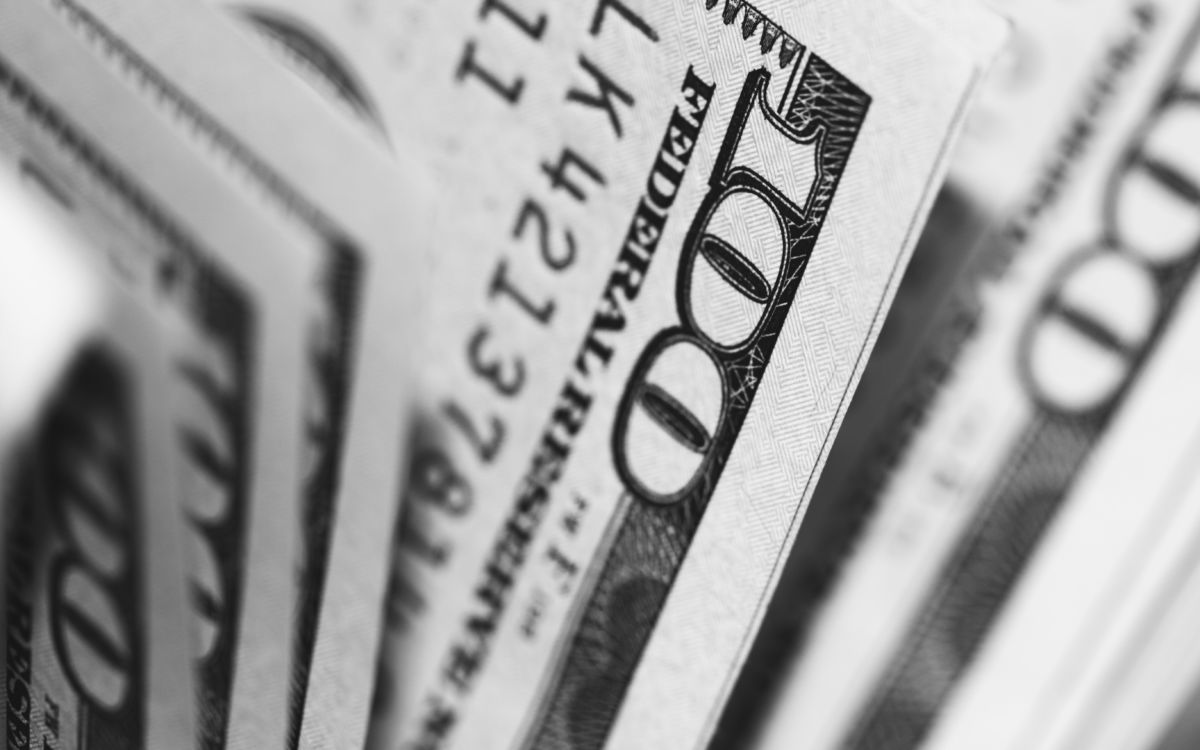p>In the 2018 midterms, Democrats benefited more than Republicans from election spending by outside groups for the first time in recent history. Now, thanks to a new report from Public Citizen, we have a better understanding of where much of that money backing Democrats came from: wealthy individuals who earn their livings as hedge fund founders, bank executives, and other key positions in the financial industry.
The report, named “Plutocrat Politics: How Financial Sector Wealth Fuels Political Ad Spending” and authored by Public Citizen’s Alan Zibel, analyzed the 100 individuals who gave the most money to outside political spending groups in the 2018 cycle and found that about half of that money came from people with financial industry backgrounds. Roughly three-quarters of the money donated by financial industry donors was spent supporting Democratic candidates. The finance industry donors in the top 100 gave $264 million to Democrat-supporting outside groups in 2017-18, according to the report.
“By lavishing spending on both Republicans and Democrats, the ultrawealthy receive access and influence to block the aggressive, progressive policy agenda that Americans favor by overwhelming margins,” Robert Weissman, president of Public Citizen, said in a press statement. “Our democracy can’t function if the plutocrat class maintains an iron grip on American election campaigns.”
While donations to outside spending groups backing Democrats was dominated by individuals from the financial industry, donations to outside groups supporting Republicans came from donors connected to a wider range of industries.
“The financial industry represented 74 percent of funding for pro-Democrat outside spending efforts, followed by inherited wealth (8 percent), technology (6 percent) media (5.5 percent) and real estate (3 percent),” reads the report. “The sources of funding for pro-Republican outside spending efforts reflected far more industries, including gambling (41 percent), finance (25 percent), industrial supply and distribution (13 percent), energy (6 percent) and technology (2.6 percent).”
Outside groups, which include organizations organized as nonprofits, political action committees, super PACs, and 527s, spend money on elections independently from candidates’ campaigns. These political entities have boomed in popularity since the 2010 Supreme Court case Citizens United v. FEC allowed corporations and unions to spend unlimited amounts of money on elections because, unlike candidate’s campaign committees, they are not subject to contribution limits.
The Democratic party has generally been deferential to the finance industry and its policy wishes in recent history, and its dependence on the industry for election funding creates conflicts of interest that make significant change difficult.
Several policies that financial reform advocates have called for would negatively impact the industries tied to the big Democratic donors. For example, establishing a financial transaction tax — a small levy on certain transactions to guard against excess automation and speculation — could hurt Virtu Financial, a high-frequency trading firm that acquired GETCO, whose founder and former board member Daniel Tierney gave $4.3 million to a range of Democratic outside spending groups in 2017-18. A proposal to close the carried interest loophole that provides a tax break to partners at private equity and hedge funds could directly hit several big Democratic donors, including Baupost Group CEO and portfolio manager Seth Klarman ($5.2 million donated to Democrats), Renaissance Technologies non-executive chairman and advisor James Simons ($20.7 million), and Bain Capital co-chairman Joshua Bekenstein ($6.7 million).
Although the overall amount benefiting Republicans was smaller, several major finance industry donors spent big to back Republicans. Hedge fund owner Kenneth Griffin gave $18.4 million to pro-Republican outside spending groups in 2017-18, including $10 million to the New Republican PAC, a super PAC that spent $29 million on negative ads against former Democratic Sen. Bill Nelson (Fla). Blackstone Group CEO Steve Schwarzman gave $11.8 million to Republican outside spending groups, most of it going to two super PACs that are affiliated with Republican congressional leadership, the Senate Leadership Fund and the National Republican Senate Committee.
“The influence of ultra-wealthy donors makes it harder to advance popular policies such as addressing inequality, imposing wealth taxes, strengthening worker protections, raising the minimum wage, ensuring health care for all and strengthening white collar law enforcement,” Public Citizen writes.
Its solution? “To end the massive influx of corporate and special interest money into our elections, Public Citizen has long championed a constitutional amendment to overturn Citizens United and supports public financing of campaigns.”
Join us in defending the truth before it’s too late
The future of independent journalism is uncertain, and the consequences of losing it are too grave to ignore. To ensure Truthout remains safe, strong, and free, we need to raise $27,000 in the next 24 hours. Every dollar raised goes directly toward the costs of producing news you can trust.
Please give what you can — because by supporting us with a tax-deductible donation, you’re not just preserving a source of news, you’re helping to safeguard what’s left of our democracy.
